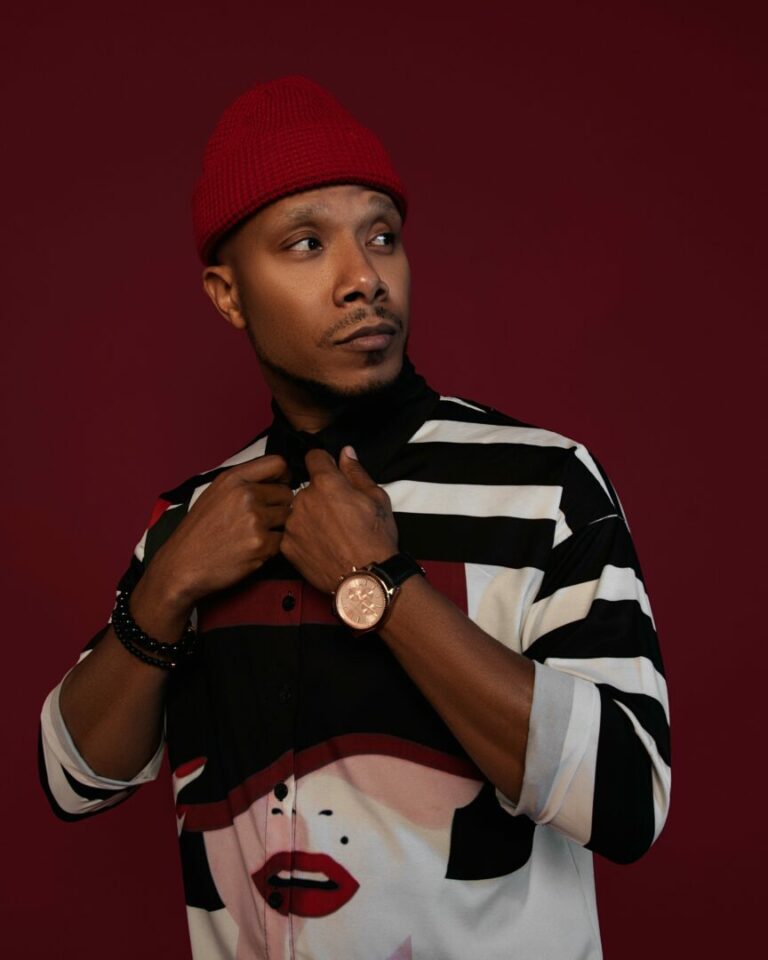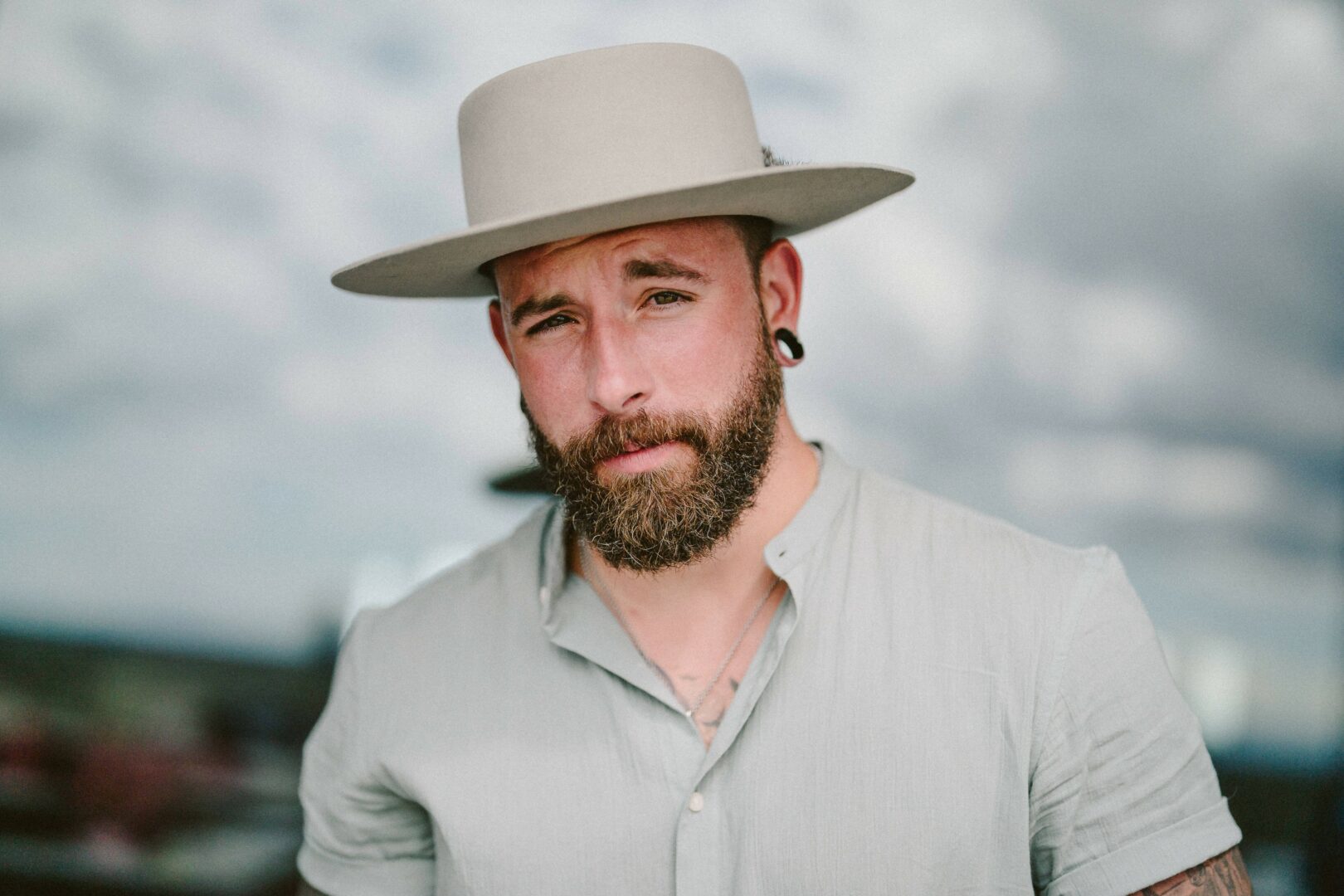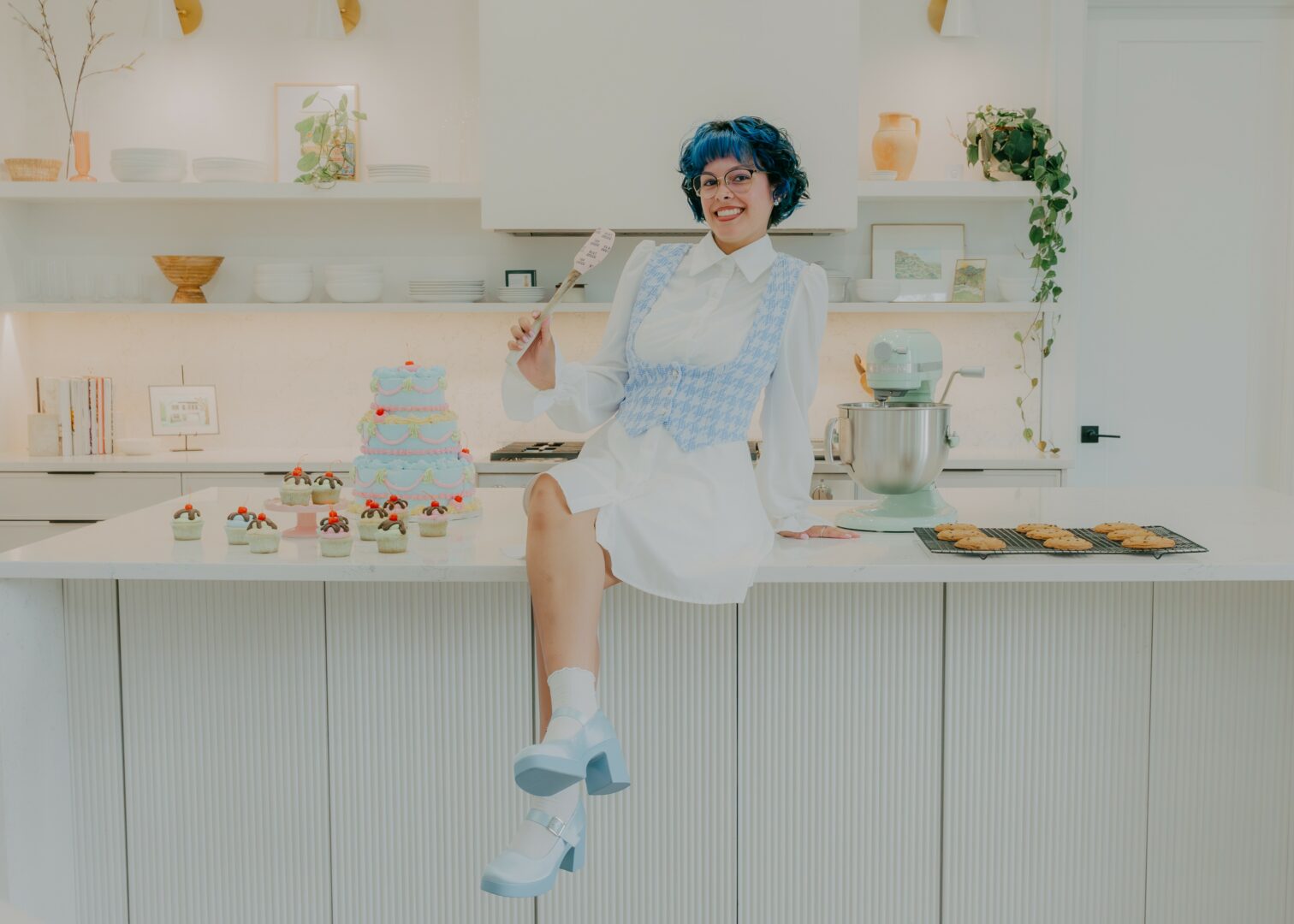Even as there is a growing recognition for the need for representation, there are still many cases where folks will find themselves as the only person in a room representing their particular demographic – and often there is pressure to perform in such contexts to prove competence not just for yourself but for everyone who is like you. The burden and the stress of being the “representer” is real, and so we wanted to create a space where folks can discuss who they go about ensuring they are effective and successful even in contexts where no one else on the team or in the room is like them.
Gary Beauford

For me it’s relying on & trusting in God to be my source in all that I do! So whatever room I’m in I bring the confidence God has given me to walk in the abilities & gifts bestowed on me from Him. Read more>>
Dr. Darrius Geter

I’ll start with this disclaimer: It is important to dress for success! With that being said, over time, I’ve realized that wearing a suit in these spaces, unless specifically required, no longer serves me. I found that dressing up often put me in a mindset of pretending — as if I had to convince myself and others that I belonged. The suit became part of that performance, making me feel like I was selling something with little value. But once I stopped wearing the suit, I allowed myself to show up authentically. Read more>>
Oliver James

Being functionally illiterate as an adult, I have assumed for most of my life that I was the only one like me in the room. Not being able to read is not something you can see when you look at a person. When I was younger, I did some dangerous things when I was the only one in the room like me: I’d lie, I’d manipulate, I’d be defensive and uncooperative. But then I realized that wasn’t getting me anywhere. That’s around the same time I decided to learn to read. Going through the journey of learning to read as an adult was challenging. Read more>>
Adryelle

I used to compare myself a lot to other people or other artists. I think it was when I realized that everyone is unique, including myself, that nobody else can really be like another person that I started to embrace that. I realized that even if (example) several people were in the same room painting the same picture, everyone’s picture would look different, even if we were painting the same flower, even though the colors might be the same, the interpretation of what we see the flower to be would be different. Read more>>
Cindy Geffrard

I have learned the art of preparation and maintaining professionalism. When you are the only one in the room ,you’re an outsider. Being an outsider means you will be tested and under judgment. People’s perception of you will be through the lens of what their personal experience was with someone that looks like you. I was always prepared, proactive, and, professional. Read more>>
Kyle Logan

I’ve learned to authentically always show up as myself. No matter what room I’m in no matter what it is I show up as me. I’ve always been big on creating my own path and paving a way as myself. I believe when you are you and have the confidence and ability to get the job done what you look like or being the only one in the room that looks like you really don’t matter. Read more>>
Yusto J. Yona

1. Continuous learning has been the key to my professional development, and being up-to-date with the latest trends and knowledge is vital to being more effective and competent. 2. Resilience and Adaptability in different kinds of working environments, to overcome challenges and setbacks, this is the key to success. Read more>>
Lena Maxfield Edwards

As a Black woman in business, being the only one in the room can feel isolating, but I’ve learned to turn that into my strength. I remind myself that my voice, perspective, and experience are valuable, even if no one else in the room looks like me. I lead with confidence and let my work speak for itself, but I also know how to navigate spaces where I might not be the first choice for certain opportunities. Building strong relationships and allies in the industry has been key, but staying true to who I am and what I stand for is non-negotiable. At the end of the day, being the only one in the room means I’m breaking barriers—and that’s power. Read more>>
Alesia Matiushchenko

Being an entrepreneur and often the only one in the room that looks like me has been both a challenge and an opportunity. When I started Sphere Photo, I quickly learned that being different gave me a unique perspective, but it also meant that I had to constantly prove my value and vision to others. Here are a few key things I’ve learned along the way: Read more>>
Steven Anthony

Any good story starts with being able to captivate and hold a person’s attention. To be unique and stand out, you have to find what truly excites you, and share this! This passion is fuel. Let it loose! Showcase this to others. This is powerful and even though you may be the only one in the room, you have to express yourself. Embellish this with stories of travel, tricky situations, or words of wisdom. Everyone craves a good story and is ready to listen. Read more>>
Saubir Logan

Being the only one in the room who looks like you is one of the most challenging obstacles but, you must overcome! One of the words I live by is perseverance. When you are the only one in the room who looks like you it can be difficult to find comfort or relatability. There is so much power in groups that share the same characteristics, but there is more power in standing alone. Read more>>
Samuel Coyer

Branding Yourself. Everyone is unique in their own way. Being able to infuse my personality into my work has helped me stand out from the crowd. People are great at detecting insincerity, so in business, authenticity matters. By running your business in a way that’s true to who you are, people will recognize and appreciate your genuine approach. Read more>>
Jackie Beck

Being the only one in the room that does what I do is both a blessing and a curse. It’s a blessing because there is no competition. Sure, there are others whose work impacts the work I do, but no one can compete with me. On the other hand, no one really knows what I do. Read more>>
Vince Nguyen

As an Queer Asian-American man in the Atlanta dance scene, I easily stick out in most spaces that I enter. Whether I am taking a dance class or attending a battle, there’s usually an unspoken pressure on me – an expectation and curiosity of how I will perform. Furthermore, being one of the few waackers in the scene has also given me additional pressure. When I showcase my waacking, I have to expect that my movement won’t be fully understood because many people don’t have the knowledge of what it is. Read more>>
Jeriesha Bushyhead

I have learned to be effective and successful even when I am the only one in the room who looks like me by embracing my uniqueness and leveraging it as a strength. I have cultivated a strong sense of self-confidence and self-worth, knowing that my diverse perspective and experiences bring value to the table. Read more>>
Branden Nelson

Being effective when you’re the only one in the room starts with truly knowing who you are and being confident in that person. When you don’t need validation from others, the fact that you’re the only one who looks like you in that space becomes less important. It’s about understanding your own value and walking into every room with a clear purpose. Read more>>
Vama Shah

As an Indian female model, being the only one in the room who looks like me has been both a challenge and a source of empowerment. In an industry that often lacks representation for South Asian women, I’ve learned to turn this uniqueness into a strength rather than see it as an obstacle. Read more>>
Jessica Smith-presley

As a Black woman who has often found herself as the only one in the room, I’ve had to develop strategies to not only navigate but also thrive in those spaces. There’s a unique strength that comes from understanding that while you may be the only one who looks like you, your presence is not only valid but necessary. Here’s how I’ve learned to be effective in those moments: owning my own identity, mastering emotional intelligence, overcoming hurdles through resilience and developing a thick skin. Read more>>
Arion Vanzego

One important tool I have gradually learned to use prominently over the course of my life so far is the ability to learn from anyone in any setting that I am in. I believe this tool is vital to everyday endeavors we go through. I have seen how important this is before I even started my artistic journey. I can admit I often catch myself “people-watching” in open settings. Watching peoples’ mannerisms, body language, looking at their appearance from their outfit to hair style, just from the observation of human interaction alone I can learn so much or just gain a perspective on my viewpoint. Read more>>
“morbid” Mark Dalton

As an artist, I often find myself navigating spaces where my experiences, perspectives, or even my level of success may set me apart. Whether I’m the most accomplished person in the room or among those with greater achievements, I’ve learned to leverage each scenario as a learning opportunity. Read more>>
Jerm V. (dweeb Kil.)

Ha, nice question! I’ve totally drawn up a distinct category of artistry for myself; ahead of anyone else’s say so : ) I began my own journey as both a virtual artist + a creative leading performance as a collectible item & apparel loving display table! I operate this evolving creative fashion & streetwear collection called “Dweeb Kil.” (@dweebkil): Where local social gatherings are my chance to etch creative presence & expression into these surroundings that accommodate creative folks with bigger aspirations – It’s super enlightening + crowds of potential people actually help & support what I can direct (as a stylized outfit, passion driven in ensemble or performance). Read more>>
Dr. Angelia Williams

I have been the only one that looks like me in many rooms. I was classically trained during my undergraduate experience at the University of Wisconsin-Milwaukee. There were only a few African-American students throughout the entire Peck School of the Arts, and that number was even more minuscule when it came to the music program. However, that never bothered me because I learned very early to embrace my uniqueness because my mother taught me that. Read more>>
Lizbeth Sinaí Rodríguez Rodríguez

I think the answer is in the question: when you are the only one in the room that looks like you. That’s it. From my experience, when I compare myself to others—or even worse, to my own expectations and values—that’s when things start to fall apart. We all know the saying, “It’s a waste of time to compare ourselves to others because everyone has their own story and path,” but in practice, it’s much more difficult to follow. Read more>>
Markyshia Meadow

I’ve learned that as long as you are confident in yourself and whatever craft you have that’s all that matters. People can tell when you’re not confident and they prey on that, but when you’re confident and it’s showing people know they can’t just approach you any kind of way. Let your work speak for itself. It’s ok to not be liked by everyone. Standing alone and not fitting in isn’t always a bad thing. Read more>>










